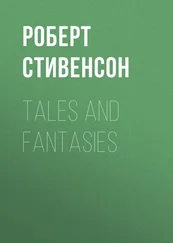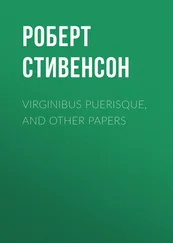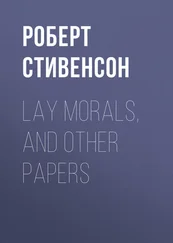Роберт Стивенсон - Familiar Studies of Men and Books
Здесь есть возможность читать онлайн «Роберт Стивенсон - Familiar Studies of Men and Books» — ознакомительный отрывок электронной книги совершенно бесплатно, а после прочтения отрывка купить полную версию. В некоторых случаях можно слушать аудио, скачать через торрент в формате fb2 и присутствует краткое содержание. Жанр: foreign_home, literature_19, на английском языке. Описание произведения, (предисловие) а так же отзывы посетителей доступны на портале библиотеки ЛибКат.
- Название:Familiar Studies of Men and Books
- Автор:
- Жанр:
- Год:неизвестен
- ISBN:нет данных
- Рейтинг книги:3 / 5. Голосов: 1
-
Избранное:Добавить в избранное
- Отзывы:
-
Ваша оценка:
- 60
- 1
- 2
- 3
- 4
- 5
Familiar Studies of Men and Books: краткое содержание, описание и аннотация
Предлагаем к чтению аннотацию, описание, краткое содержание или предисловие (зависит от того, что написал сам автор книги «Familiar Studies of Men and Books»). Если вы не нашли необходимую информацию о книге — напишите в комментариях, мы постараемся отыскать её.
Familiar Studies of Men and Books — читать онлайн ознакомительный отрывок
Ниже представлен текст книги, разбитый по страницам. Система сохранения места последней прочитанной страницы, позволяет с удобством читать онлайн бесплатно книгу «Familiar Studies of Men and Books», без необходимости каждый раз заново искать на чём Вы остановились. Поставьте закладку, и сможете в любой момент перейти на страницу, на которой закончили чтение.
Интервал:
Закладка:
It may be questionable whether any marriage could have tamed Burns; but it is at least certain that there was no hope for him in the marriage he contracted. He did right, but then he had done wrong before; it was, as I said, one of those relations in life which it seems equally wrong to break or to perpetuate. He neither loved nor respected his wife. “God knows,” he writes, “my choice was as random as blind man’s buff.” He consoles himself by the thought that he has acted kindly to her; that she “has the most sacred enthusiasm of attachment to him;” that she has a good figure; that she has a “wood-note wild,” “her voice rising with ease to B natural,” no less. The effect on the reader is one of unmingled pity for both parties concerned. This was not the wife who (in his own words) could “enter into his favourite studies or relish his favourite authors;” this was not even a wife, after the affair of the marriage lines, in whom a husband could joy to place his trust. Let her manage a farm with sense, let her voice rise to B natural all day long, she would still be a peasant to her lettered lord, and an object of pity rather than of equal affection. She could now be faithful, she could now be forgiving, she could now be generous even to a pathetic and touching degree; but coming from one who was unloved, and who had scarce shown herself worthy of the sentiment, these were all virtues thrown away, which could neither change her husband’s heart nor affect the inherent destiny of their relation. From the outset, it was a marriage that had no root in nature; and we find him, ere long, lyrically regretting Highland Mary, renewing correspondence with Clarinda in the warmest language, on doubtful terms with Mrs. Riddel, and on terms unfortunately beyond any question with Anne Park.
Alas! this was not the only ill circumstance in his future. He had been idle for some eighteen months, superintending his new edition, hanging on to settle with the publisher, travelling in the Highlands with Willie Nichol, or philandering with Mrs. M’Lehose; and in this period the radical part of the man had suffered irremediable hurt. He had lost his habits of industry, and formed the habit of pleasure. Apologetical biographers assure us of the contrary; but from the first, he saw and recognised the danger for himself; his mind, he writes, is “enervated to an alarming degree” by idleness and dissipation; and again, “my mind has been vitiated with idleness.” It never fairly recovered. To business he could bring the required diligence and attention without difficulty; but he was thenceforward incapable, except in rare instances, of that superior effort of concentration which is required for serious literary work. He may be said, indeed, to have worked no more, and only amused himself with letters. The man who had written a volume of masterpieces in six months, during the remainder of his life rarely found courage for any more sustained effort than a song. And the nature of the songs is itself characteristic of these idle later years; for they are often as polished and elaborate as his earlier works were frank, and headlong, and colloquial; and this sort of verbal elaboration in short flights is, for a man of literary turn, simply the most agreeable of pastimes. The change in manner coincides exactly with the Edinburgh visit. In 1786 he had written the Address to a Louse , which may be taken as an extreme instance of the first manner; and already, in 1787, we come upon the rosebud pieces to Miss Cruikshank, which are extreme examples of the second. The change was, therefore, the direct and very natural consequence of his great change in life; but it is not the less typical of his loss of moral courage that he should have given up all larger ventures, nor the less melancholy that a man who first attacked literature with a hand that seemed capable of moving mountains, should have spent his later years in whittling cherry-stones.
Meanwhile, the farm did not prosper; he had to join to it the salary of an exciseman; at last he had to give it up, and rely altogether on the latter resource. He was an active officer; and, though he sometimes tempered severity with mercy, we have local testimony oddly representing the public feeling of the period, that, while “in everything else he was a perfect gentleman, when he met with anything seizable he was no better than any other gauger.”
There is but one manifestation of the man in these last years which need delay us: and that was the sudden interest in politics which arose from his sympathy with the great French Revolution. His only political feeling had been hitherto a sentimental Jacobitism, not more or less respectable than that of Scott, Aytoun, and the rest of what George Borrow has nicknamed the “Charlie over the water” Scotchmen. It was a sentiment almost entirely literary and picturesque in its origin, built on ballads and the adventures of the Young Chevalier; and in Burns it is the more excusable, because he lay out of the way of active politics in his youth. With the great French Revolution, something living, practical, and feasible appeared to him for the first time in this realm of human action. The young ploughman who had desired so earnestly to rise, now reached out his sympathies to a whole nation animated with the same desire. Already in 1788 we find the old Jacobitism hand in hand with the new popular doctrine, when, in a letter of indignation against the zeal of a Whig clergyman, he writes: “I daresay the American Congress in 1776 will be allowed to be as able and as enlightened as the English Convention was in 1688; and that their posterity will celebrate the centenary of their deliverance from us, as duly and sincerely as we do ours from the oppressive measures of the wrong-headed house of Stuart.” As time wore on, his sentiments grew more pronounced and even violent; but there was a basis of sense and generous feeling to his hottest excess. What he asked was a fair chance for the individual in life; an open road to success and distinction for all classes of men. It was in the same spirit that he had helped to found a public library in the parish where his farm was situated, and that he sang his fervent snatches against tyranny and tyrants. Witness, were it alone, this verse: —
“Here’s freedom to him that wad read,
Here’s freedom to him that wad write;
There’s nane ever feared that the truth should be heard
But them wham the truth wad indite.”
Yet his enthusiasm for the cause was scarce guided by wisdom. Many stories are preserved of the bitter and unwise words he used in country coteries; how he proposed Washington’s health as an amendment to Pitt’s, gave as a toast “the last verse of the last chapter of Kings,” and celebrated Dumouriez in a doggrel impromptu full of ridicule and hate. Now his sympathies would inspire him with Scots , wha hae ; now involve him in a drunken broil with a loyal officer, and consequent apologies and explanations, hard to offer for a man of Burns’s stomach. Nor was this the front of his offending. On February 27, 1792, he took part in the capture of an armed smuggler, bought at the subsequent sale four carronades, and despatched them with a letter to the French Assembly. Letter and guns were stopped at Dover by the English officials; there was trouble for Burns with his superiors; he was reminded firmly, however delicately, that, as a paid official, it was his duty to obey and to be silent; and all the blood of this poor, proud, and falling man must have rushed to his head at the humiliation. His letter to Mr. Erskine, subsequently Earl of Mar, testifies, in its turgid, turbulent phrases, to a perfect passion of alarmed self-respect and vanity. He had been muzzled, and muzzled, when all was said, by his paltry salary as an exciseman; alas! had he not a family to keep? Already, he wrote, he looked forward to some such judgment from a hackney scribbler as this: “Burns, notwithstanding the fanfaronnade of independence to be found in his works, and after having been held forth to view and to public estimation as a man of some genius, yet, quite destitute of resources within himself to support his borrowed dignity, he dwindled into a paltry exciseman, and shrunk out the rest of his insignificant existence in the meanest of pursuits, and among the vilest of mankind.” And then on he goes, in a style of rhodomontade, but filled with living indignation, to declare his right to a political opinion, and his willingness to shed his blood for the political birthright of his sons. Poor, perturbed spirit! he was indeed exercised in vain; those who share and those who differ from his sentiments about the Revolution, alike understand and sympathise with him in this painful strait; for poetry and human manhood are lasting like the race, and politics, which are but a wrongful striving after right, pass and change from year to year and age to age. The Twa Dogs has already outlasted the constitution of Siéyès and the policy of the Whigs; and Burns is better known among English-speaking races than either Pitt or Fox.
Читать дальшеИнтервал:
Закладка:
Похожие книги на «Familiar Studies of Men and Books»
Представляем Вашему вниманию похожие книги на «Familiar Studies of Men and Books» списком для выбора. Мы отобрали схожую по названию и смыслу литературу в надежде предоставить читателям больше вариантов отыскать новые, интересные, ещё непрочитанные произведения.
Обсуждение, отзывы о книге «Familiar Studies of Men and Books» и просто собственные мнения читателей. Оставьте ваши комментарии, напишите, что Вы думаете о произведении, его смысле или главных героях. Укажите что конкретно понравилось, а что нет, и почему Вы так считаете.












